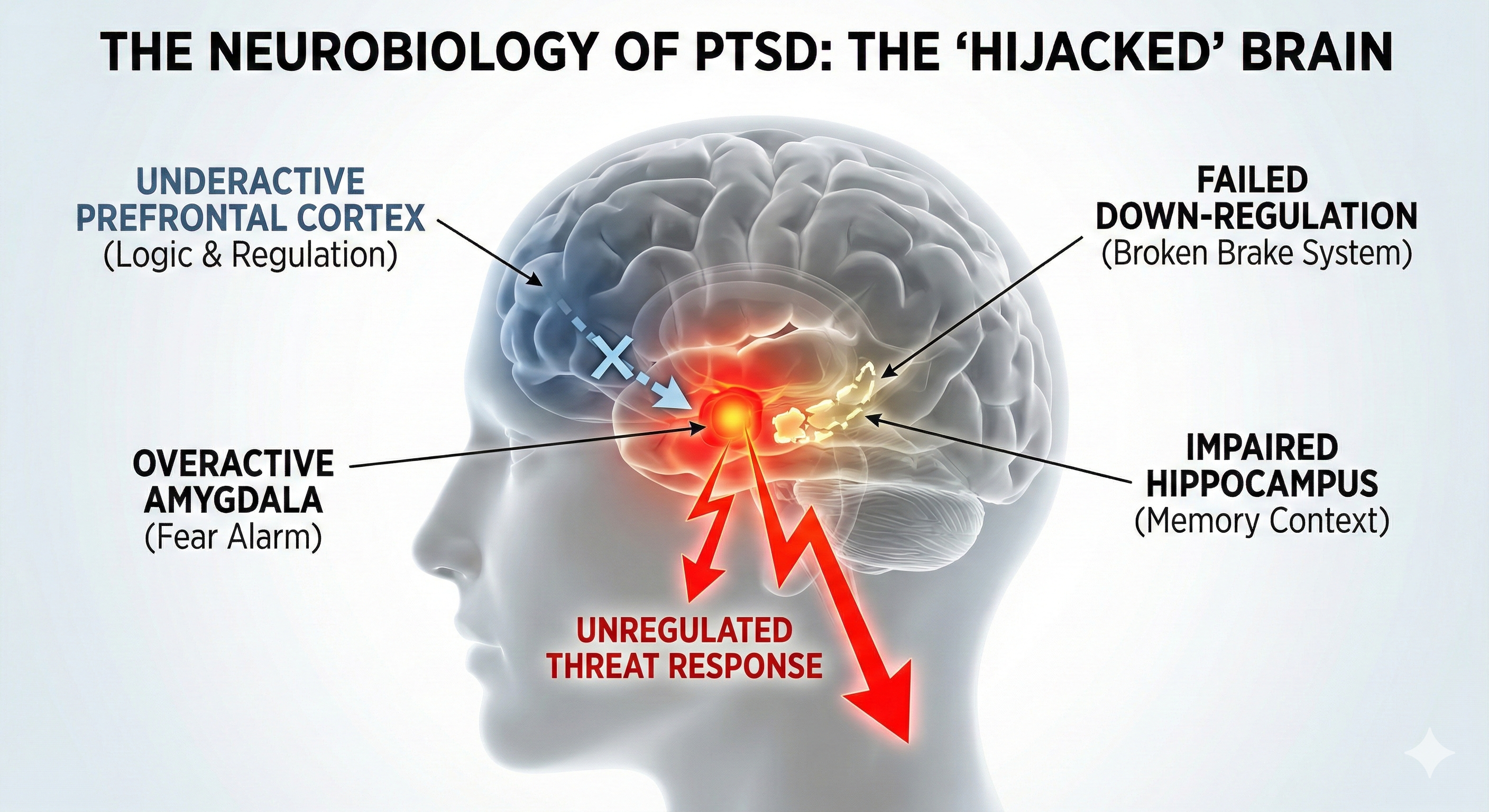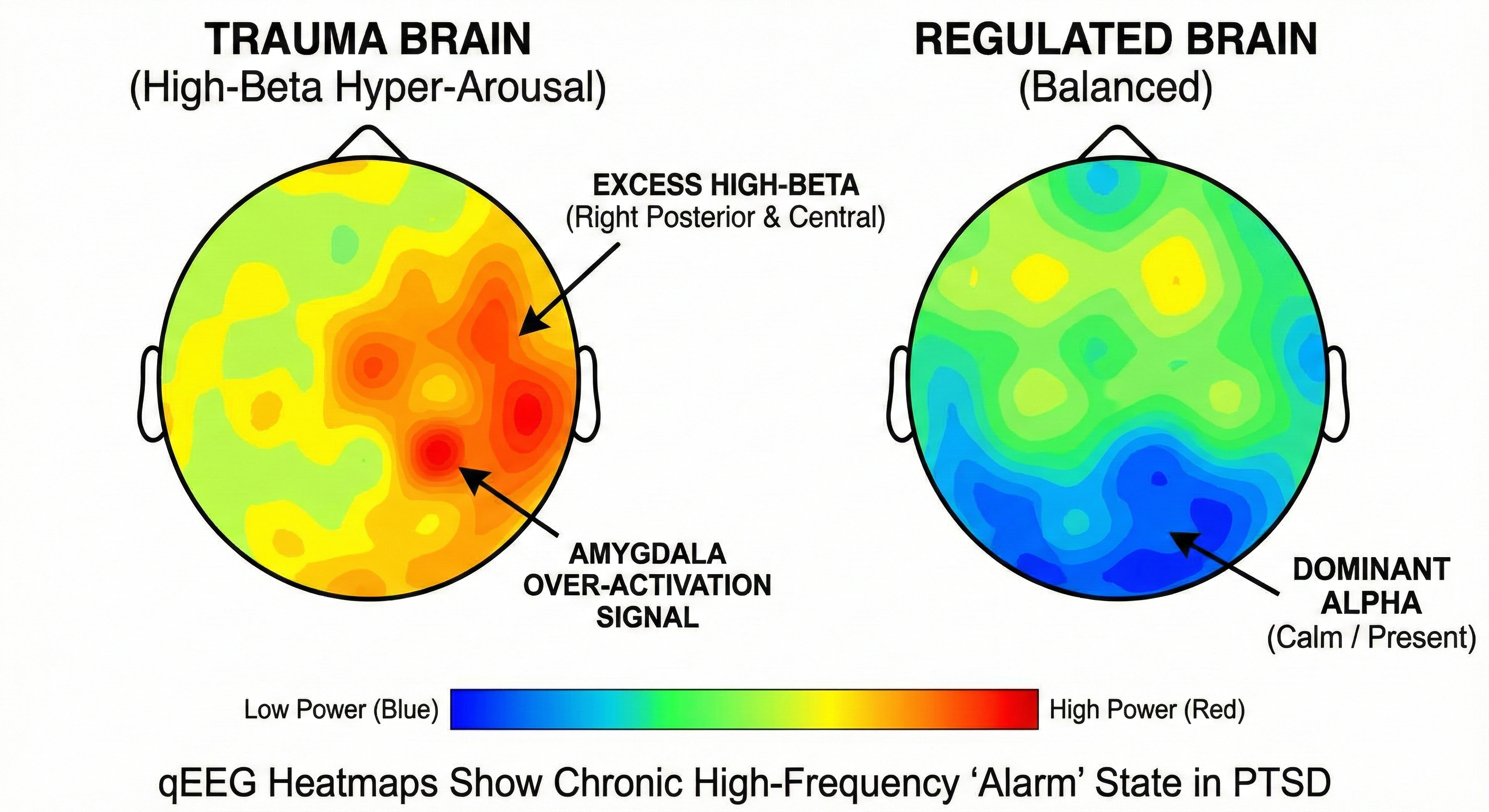Trauma & PTSD Recovery in Ogden & SLC
Trauma lives in the body long after the event has passed. Whether you are dealing with a single incident or a history of complex trauma, we provide an integrated path to help your nervous system finally feel safe again.
Begin Your Recovery
How Trauma Impacts the System
Hyper-Vigilance
Always being "on guard," scanning for threats, and struggling to relax even in safe environments.
Intrusive Memories
Flashbacks or distressing dreams that make the past feel like it is happening in the present.
Emotional Numbing
Feeling disconnected from others, or a sense of "flatness" used to protect against big emotions.
Somatic Stress
Physical symptoms like chronic tension, digestive issues, or a high startle response.
Trauma-Informed Clinical Counseling
We provide a phased approach to processing your story safely.
Safety & Stabilization
Before we dive into the "why," we help you build the "how"—practical coping skills to manage flashbacks and emotional flooding in your daily life.
Cognitive Processing (CPT)
We help you challenge the "stuck points"—the beliefs about safety, trust, and self-worth that trauma often distorts.
Narrative Therapy
Reclaiming your story. We work to integrate traumatic memories so they become part of your past, rather than your current reality.
Somatic Grounding
Focusing on the body's sensations to help you stay present and anchored during the healing process.
Quieting the "Survival" Brain
When you experience trauma, your **Amygdala** can become hyper-sensitized. It sends out constant "High-Beta" alarm signals, keeping your body in a state of high cortisol and adrenaline.
Top-Down: Processing the Story
Clinical counseling allows you to process the event, reduce shame, and re-author your life narrative.
Bottom-Up: Quieting the Alarm Optional Booster
Neurofeedback helps train the brain out of the permanent "High-Beta" state. By rewarding the brain for moving into calmer Alpha and Theta states, we can reduce the physiological intensity of PTSD.

The Evidence for Integrated Recovery
Research consistently shows that addressing the biological "hardware" of the brain significantly improves outcomes in traditional trauma therapy.
The Van der Kolk Landmark Study (2016)
Led by Bessel van der Kolk (author of The Body Keeps the Score), this trial focused on treatment-resistant PTSD.
- Proven Results: Following 24 sessions of Neurofeedback, 72.7% of participants no longer met the clinical criteria for a PTSD diagnosis.
- Better Regulation: The study proved that training the brain's rhythms improved "affect regulation"—the ability to stay calm under stress.
Source: Van der Kolk et al. (2016). A Randomized Controlled Study of Neurofeedback for Chronic PTSD. PLOS ONE.
The Atlas Institute Clinical Trial (2023)
An international collaboration evaluating Neurofeedback against "gold standard" trauma protocols.
- Biological Shift: Over 60% of participants achieved full clinical remission by restoring balance to the brain's "Default Mode Network."
- Safe Processing: Research shows Neurofeedback is often more tolerable than traditional exposure therapies because it quiets the physical "alarm" first.
Source: Atlas Institute / University of Ottawa (2023). Homeostatic Normalization of Brain Rhythms in PTSD.
"By addressing the overactive amygdala and the high-beta 'alarm' signals directly, we provide a foundation of safety that allows traditional talk therapy to be more effective and lasting."

Objective Insights for Trauma
Trauma is often invisible on standard medical tests. By using qEEG mapping via the 10-20 international system, we can see the neurological "footprint" of your trauma—often visible as over-arousal in the right posterior regions of the brain.
This objective data validates your experience: you aren't "weak" or "broken," your brain is simply doing its best to protect you. We use this map to ensure our integrated therapy is precise and effective.
Trauma Therapy FAQ
You Don't Have to Stay Stuck
Take the first step toward a calmer, more present life with our specialized trauma team in Ogden and SLC.
Start Your Healing Journey